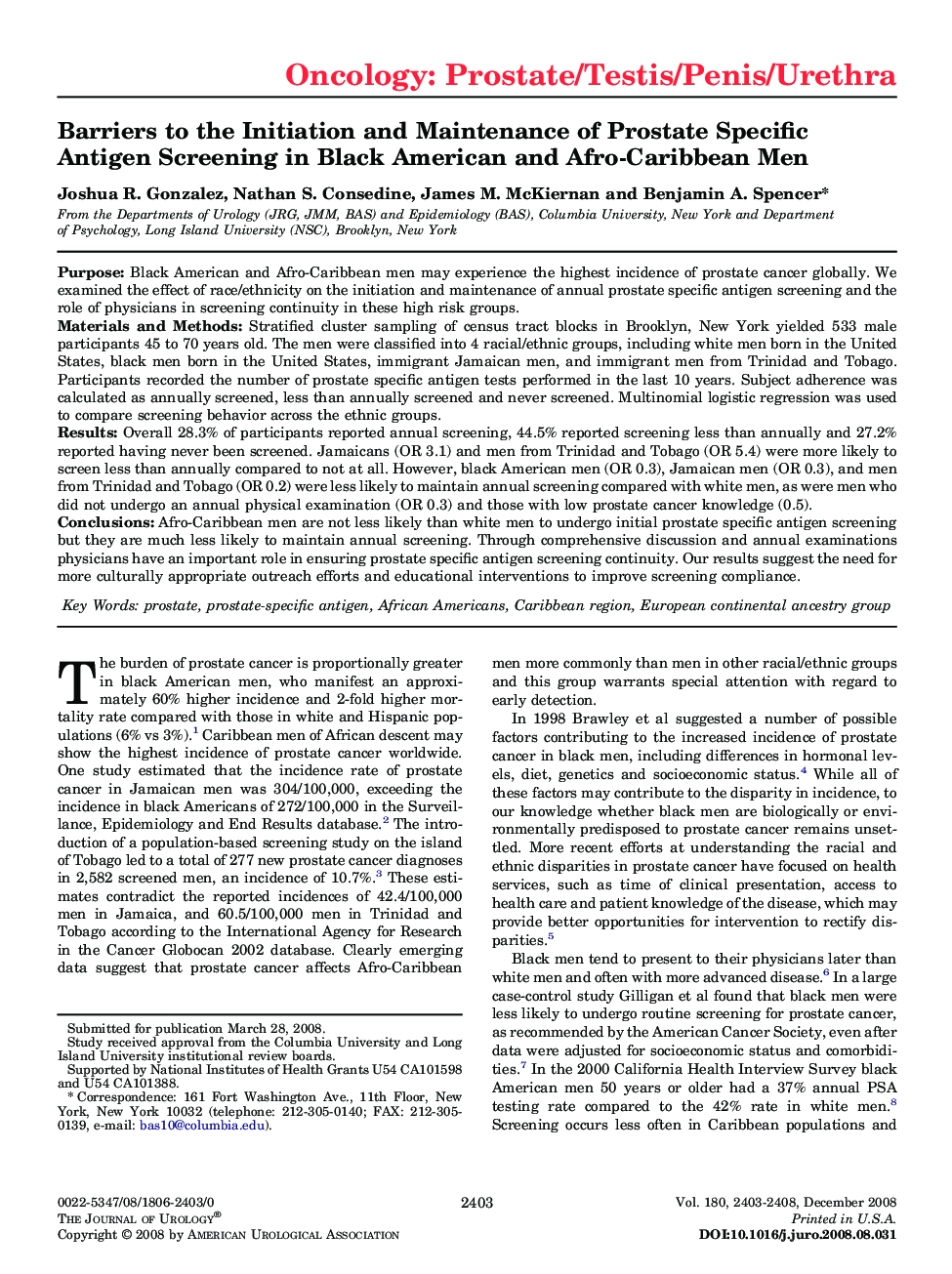| Article ID | Journal | Published Year | Pages | File Type |
|---|---|---|---|---|
| 3870133 | The Journal of Urology | 2008 | 6 Pages |
PurposeBlack American and Afro-Caribbean men may experience the highest incidence of prostate cancer globally. We examined the effect of race/ethnicity on the initiation and maintenance of annual prostate specific antigen screening and the role of physicians in screening continuity in these high risk groups.Materials and MethodsStratified cluster sampling of census tract blocks in Brooklyn, New York yielded 533 male participants 45 to 70 years old. The men were classified into 4 racial/ethnic groups, including white men born in the United States, black men born in the United States, immigrant Jamaican men, and immigrant men from Trinidad and Tobago. Participants recorded the number of prostate specific antigen tests performed in the last 10 years. Subject adherence was calculated as annually screened, less than annually screened and never screened. Multinomial logistic regression was used to compare screening behavior across the ethnic groups.ResultsOverall 28.3% of participants reported annual screening, 44.5% reported screening less than annually and 27.2% reported having never been screened. Jamaicans (OR 3.1) and men from Trinidad and Tobago (OR 5.4) were more likely to screen less than annually compared to not at all. However, black American men (OR 0.3), Jamaican men (OR 0.3), and men from Trinidad and Tobago (OR 0.2) were less likely to maintain annual screening compared with white men, as were men who did not undergo an annual physical examination (OR 0.3) and those with low prostate cancer knowledge (0.5).ConclusionsAfro-Caribbean men are not less likely than white men to undergo initial prostate specific antigen screening but they are much less likely to maintain annual screening. Through comprehensive discussion and annual examinations physicians have an important role in ensuring prostate specific antigen screening continuity. Our results suggest the need for more culturally appropriate outreach efforts and educational interventions to improve screening compliance.
